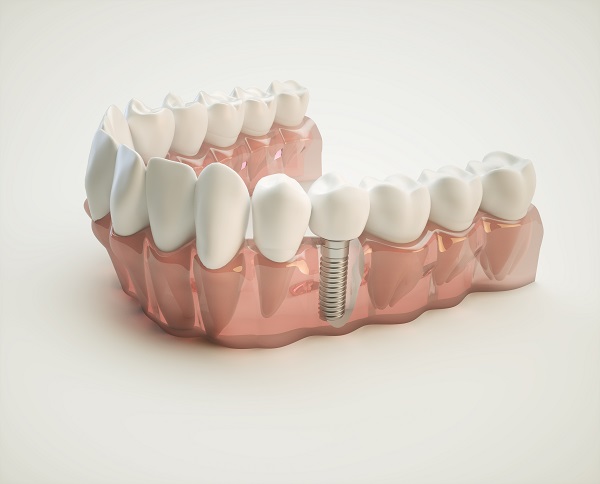Are There Any Specific Cleaning Requirements for a Dental Implant?

Caring and maintaining a dental implant is crucial for extending the lifespan, appearance and functionality. Poor maintenance can increase the risk of peri-implantitis, an inflammatory disease that attacks the soft and hard tissues around the implants. If left untreated, the condition can cause bone loss and eventual implant failure. Cleaning dental implants can help reduce the risk of infection and implant failure and allow you to enjoy a healthy and attractive smile for many years.
Cleaning single implants
The following is an informative guide on how to clean dental implants properly:
Brush regularly with a soft-bristled toothbrush
Brushing in the morning after waking up helps to remove bacteria that has accumulated in the mouth over the night. Brushing right before bedtime is also important to reduce the risk of plaque accumulation overnight. Regular brushing keeps the mouth clean and helps prevent decay, which could lead to infection.
Toothbrushes with soft bristles cause less damage to the gums and are highly effective for cleaning plaque and tartar from the teeth. Electric toothbrushes also tend to clean better than manual toothbrushes because they can do more brush strokes than humans can.
Plaque and bacteria may build up around the dental implant crown and cause infection. To clean these areas effectively, an interdental brush with slim-head or angled-neck toothbrush can help, especially if the implant is at the rear end of the mouth.
Use a water flosser
Also called a dental water jet or oral irrigator, a water flosser is useful for eliminating bacteria in gum pockets. Rubber-tip stimulators and similar attachments come with most water flossers to help patients with sensitive gum and properly clean hard-to-reach areas of the mouth. Many dentists suggest using water flossers instead of dental floss, as some floss brands can produce materials that may contribute to implant infection. The water flosser should be used first to avoid washing away the fluoride toothpaste introduced when brushing.
Floss with crown and bridge floss
Crown and bridge floss is created specifically for cleaning under and around dental implants. The floss has a fuzzy middle with two stiff nylon ends that delicately cleans the surface of the dental implant and the porcelain touching the gumline. The thick ends allow users to put the floss between the dental implants around the gum line and remove it on the other side. They can then place the floss against the implant surface and rub carefully to clean the crevices.
It is advisable to use the floss after brushing with the toothpaste residue still in the mouth. This will help spread the fluoride around the implant and curb bacterial growth.
Use low-abrasive toothpaste
When brushing the dental implants, use a toothpaste that does not have abrasive materials such as stain-remover agents or baking soda. These materials can wear down the acrylic and the coating of porcelain implants. There are toothpastes designed specifically for cleaning dental implants or the dentist may provide recommendations.
In conclusion
Caring for a dental implant can help it last longer. Good oral hygiene along with regular dentist checkups are important.
Request an appointment here: https://gallodental.com or call GDC Smiles at (770) 504-5725 for an appointment in our Gainesville office.
Check out what others are saying about our services on Yelp: Read our Yelp reviews.
Recent Posts
Sleep apnea is a serious sleep disorder that affects millions of individuals worldwide. It occurs when breathing repeatedly stops and starts during sleep, disrupting rest and potentially causing long-term health consequences. Many people are unaware that a general dentist plays a key role in diagnosing and managing sleep apnea, particularly with non-invasive treatment solutions. By…
No matter your stage in life, maintaining a healthy smile is important. Regular visits to a family dentist provide comprehensive care for people of all ages, ensuring a lifetime of healthy smiles. These routine check-ups address immediate concerns, can prevent future dental issues, and provide you and your family with the information you need to…
ClearCorrect® is a teeth-straightening system that utilizes clear aligners to move teeth into a more appropriate position. There are many benefits to choosing ClearCorrect treatment. It is helpful to understand exactly what it is, how the treatment process works, and what cosmetic and oral health concerns ClearCorrect fixes.Everyone deserves a beautiful, properly aligned smile that…
Dental anxiety is a common issue that affects people of all ages. This term refers to the fear, anxiety, or stress of dental visits. There are several misconceptions about dental anxiety, leading to additional fear or avoidance of necessary dental care. By separating facts from fiction, patients can better understand this condition and go to…


